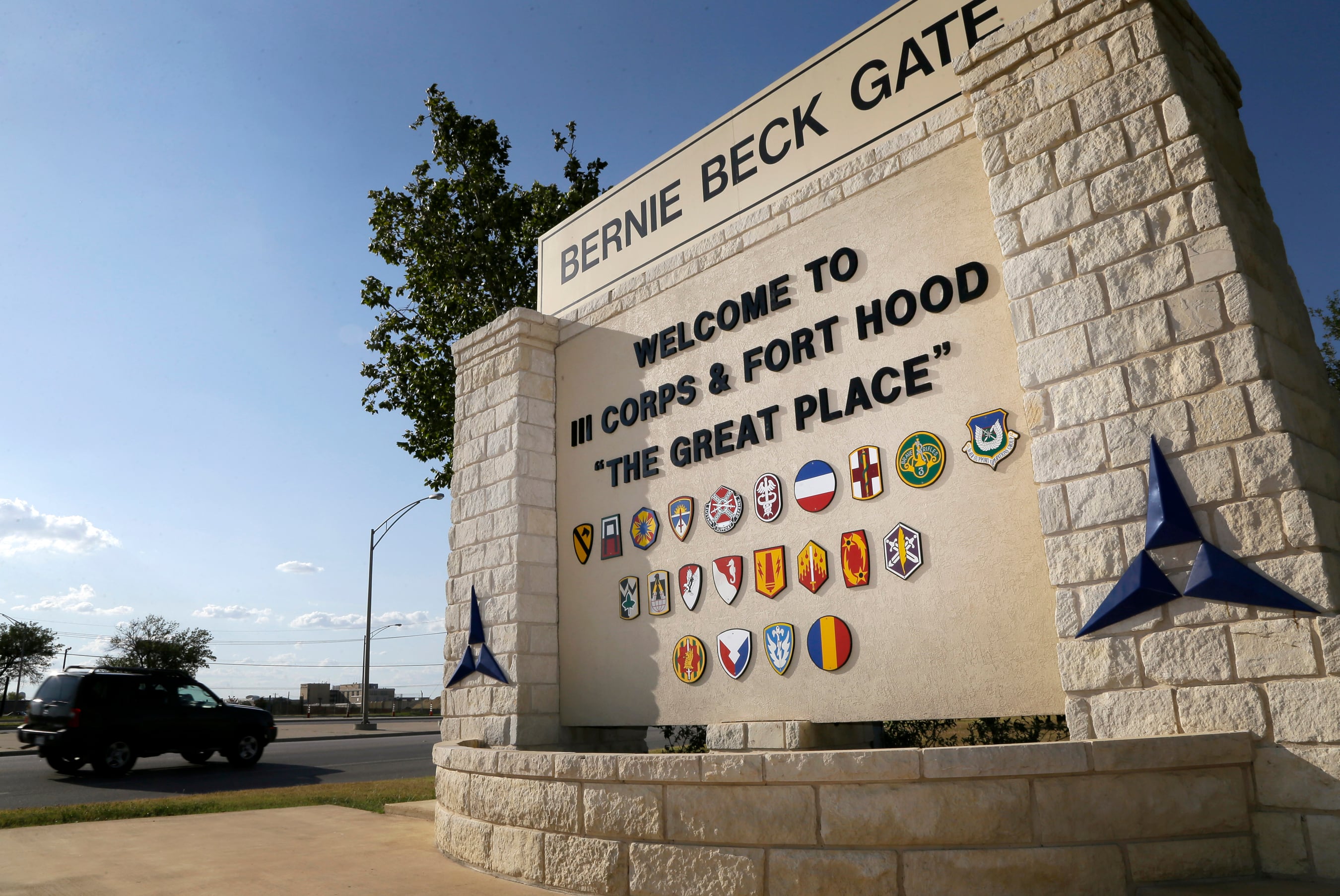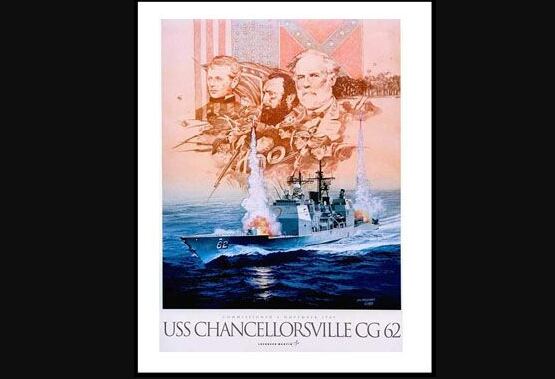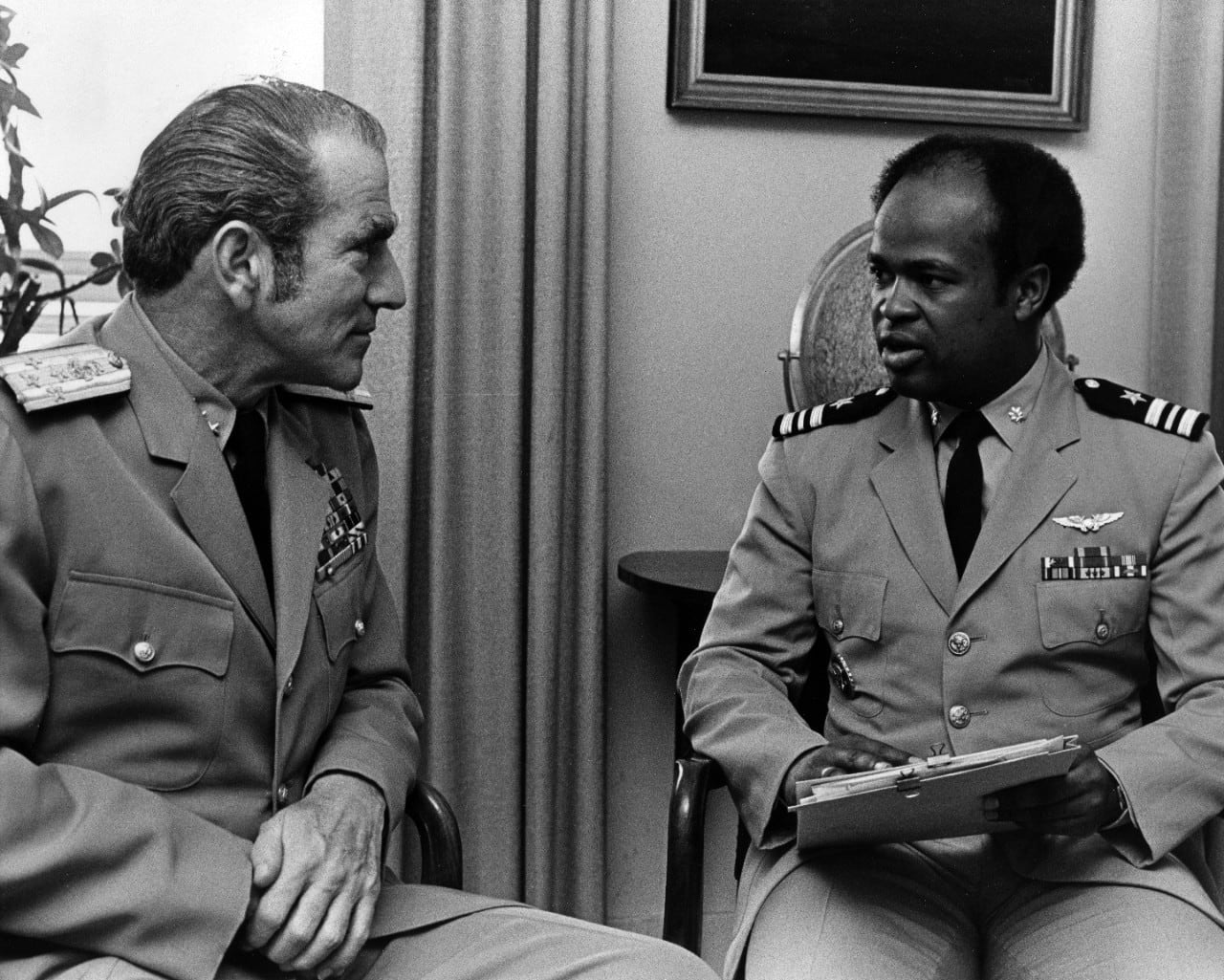John C. Stennis was a U.S. senator from Mississippi who fought against racial equality during four decades in office.
In 1988, a year before his retirement, President Ronald Reagan announced that the future CVN-74 would bear the segregationist senator’s name, and the ship has been steaming in the late lawmaker’s honor for 25 years.
But in the wake of George Floyd’s death last month, and renewed questions about equality in America, calls are emerging for the carrier to be renamed.
Writing this month for “Proceedings,” the U.S. Naval Institute’s magazine, Reuben Keith Green, a retired Black lieutenant commander, argues that the Pentagon would show true commitment to righting the wrongs of the past if it gave the ship a different name.
“I often have thought about what it must be like for a minority sailor to receive orders and serve in the USS John C. Stennis,” Green wrote. “Most sailors — and Navy leaders — have little idea of his background, but the Navy, as an institution, has a moral obligation to know.”
RELATED

Such a move, Green told Navy Times, “would send a very powerful message to the military that we are serious about putting this behind us.”
Renaming ships remains nearly unprecedented within the active-duty fleet, but the introspection coursing through the country since Floyd’s death suggests that change could be coming.
“Collectively, Black America has almost faced a nervous breakdown,” he said. “A lot of white people don’t understand how deep that cut can go.”
While the brass hasn’t spoken directly to renaming ships, Pentagon and Army leaders signaled earlier this month that they were open to a bipartisan discussion about changing the names of bases named after Confederate leaders.
Last week, Defense Secretary Mark Esper outlined three initiatives featuring varying boards and committees that will look at improving diversity and inclusion in the military.
“While I cannot speak for these three groups of leaders who will provide recommendations to the Secretary, I would personally expect that at least one of these groups will make specific recommendations regarding the naming of bases and ships,” Christopher Garver, a Pentagon spokesman, said in an email Tuesday.
While President Donald Trump has signaled his opposition to renaming bases, lawmakers have introduced legislation that may allow such efforts to bypass the White House.
Back in the 1950s, Stennis was a signer of the so-called “Southern Manifesto,” which opposed civil rights efforts.
In 1983, he was also the only southern Democrat to vote against creating a national holiday in honor of the Rev. Martin Luther King Jr., the Washington Post reported.
“The Stennis name on a diverse U.S. warship is not only problematic, but disgraceful,” Green wrote in “Proceedings.”
Stennis “was the heart, soul and brains of the white supremacist caucus in the 1948 Congress,” he wrote. “The Dixiecrats were the faction of the 1940s Democratic Party that consisted of malcontented southern delegates who protested the civil rights plank in the party platform, and President Harry S. Truman’s advocacy of that plank.”
As America and the Pentagon assesses whether to rename military bases like the Army’s Fort Bragg, named after a perpetually losing Confederate officer, another Navy ship, the guided-missile cruiser Chancellorsville, is named after a Confederate victory during the Civil War.
RELATED

Up until recently, the warship’s official website featured a portrait that included Confederate leaders and the Confederate flag.
In his piece, Green also reflects on the irony of Stennis steaming alongside the future aircraft carrier Doris Miller, named after a Black sailor who fired 50-caliber rounds at Japanese aircraft during the Pearl Harbor attack and received the Navy Cross for his heroism aboard the battleship West Virginia.
Miller only left the West Virginia when it began to sink and pulled several shipmates out of the burning water.
He was one of the last three sailors to abandon the ship.
“When the Japanese bombers attacked my ship at Pearl Harbor I forgot all about the fact that I and other Negroes can be only messmen in the Navy and are not taught how to man an antiaircraft gun,” Miller was later quoted as saying in an article by World War II magazine.
“One sends a strong message of inclusivity, and the other an immoral and cringeworthy one,” Green wrote of the two carriers.
So if the Pentagon jettisons John C. Stennis as the name for CVN 74, for whom should the carrier be renamed?
Green thinks the ship should be deemed the USS William S. Norman, honoring a Black Navy officer who served as the minority affairs assistant to Adm. Elmo Zumwalt, the 19th chief of naval operations and an advocate for racial equality in the ranks.
“I can think of no better candidate than William S. Norman … who, according to Zumwalt, did more than anyone to improve the plight of minorities in the Navy,” Green wrote.

Geoff is the managing editor of Military Times, but he still loves writing stories. He covered Iraq and Afghanistan extensively and was a reporter at the Chicago Tribune. He welcomes any and all kinds of tips at geoffz@militarytimes.com.





